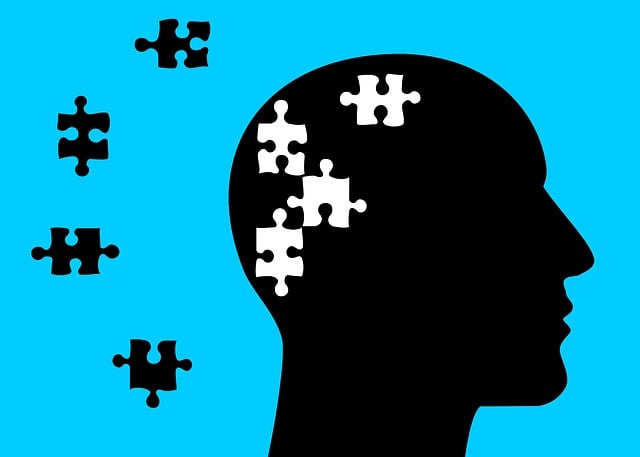Crisis Intervention Teams (CITs), led by trained professionals from Lafayette Therapy for Therapists-Clinicians, provide early mental health crisis support, preventing escalation and reducing emergency service reliance. Through specialized training, therapists gain de-escalation, risk assessment, and communication skills to foster inclusive mental health environments, reduce stigma, and improve long-term outcomes. The comprehensive program covers theoretical knowledge, practical exercises, role-playing, trauma support services, conflict resolution, self-care strategies, and emotional well-being promotion, ensuring professionals are prepared to offer confident, compassionate crisis assistance within communities.
Crisis intervention teams play a vital role in managing mental health crises. This article offers a comprehensive overview of crisis intervention training programs, from understanding their critical importance to exploring innovative approaches like Lafayette Therapy for Therapists-Clinicians. We delve into essential components, real-world scenario preparation, and evaluation methods, equipping mental health professionals with the skills needed to effectively intervene and support individuals in distress.
- Understanding Crisis Intervention Teams: A Critical Overview
- Lafayette Therapy for Therapists-Clinicians: An Innovative Approach
- Essential Components of Effective Crisis Intervention Training
- Preparing Mental Health Professionals for Real-World Scenarios
- Implementing and Evaluating Crisis Intervention Program Success
Understanding Crisis Intervention Teams: A Critical Overview

Crisis Intervention Teams (CITs) are a vital resource for communities facing mental health crises. Comprising trained professionals from various disciplines, including therapists and clinicians from Lafayette Therapy centers, these teams provide immediate, focused support to individuals experiencing severe emotional distress or mental illness. CITs operate on the principle that early intervention can prevent escalation, reduce the need for emergency services, and improve long-term outcomes for those dealing with mental health challenges.
Understanding Crisis Intervention Teams involves recognizing their multifaceted role in Mental Illness Stigma Reduction Efforts. By implementing effective Communication Strategies, these teams bridge the gap between individuals in crisis and the support systems they need. Through rigorous training programs, therapists and clinicians develop skills to de-escalate situations, assess risks, and connect people with appropriate care, thereby fostering a more supportive and inclusive Mental Health Awareness within communities.
Lafayette Therapy for Therapists-Clinicians: An Innovative Approach

Lafayette Therapy offers an innovative approach to training programs for therapists and clinicians, providing a unique opportunity for mental health professionals to enhance their skills and well-being. This program goes beyond traditional crisis intervention training by focusing on a holistic understanding of burnout prevention and emotional well-being promotion techniques. Through interactive workshops and experiential learning, participants gain insights into effective risk management planning for mental health professionals, enabling them to build resilience and navigate challenging situations with enhanced tools and strategies.
By immersing themselves in Lafayette Therapy’s comprehensive curriculum, therapists can explore innovative approaches that cater to their specific needs. This tailored training equips them with the knowledge and skills to support not only their clients but also themselves, fostering a sustainable practice built on emotional equilibrium and effective crisis intervention techniques.
Essential Components of Effective Crisis Intervention Training

Effective crisis intervention team training programs are multifaceted, designed to equip therapists and clinicians with essential tools for navigating high-stress situations. A robust curriculum should encompass a blend of theoretical knowledge, practical exercises, and role-playing scenarios that mimic real-world crises. This holistic approach fosters not just technical proficiency but also emotional resilience among the intervention team members.
Key components include education on trauma support services, enhancing communication skills via conflict resolution techniques, and promoting self-care strategies to prevent burnout. Programs that integrate these elements empower therapists-clinicians to offer confident and compassionate assistance during times of crisis, ultimately improving outcomes for those in distress. Incorporating Lafayette Therapy principles within the training further ensures a deep understanding of individual and collective healing dynamics, making intervention teams more effective and better equipped to handle complex situations.
Preparing Mental Health Professionals for Real-World Scenarios

In today’s world, mental health professionals often find themselves on the frontlines of crisis intervention. Training programs, such as those offered by Lafayette Therapy for Therapists-Clinicians, play a pivotal role in equipping them with the skills needed to navigate real-world scenarios effectively. These programs delve into diverse topics, from developing resilience and inner strength to understanding the nuances of public awareness campaigns. By immersing participants in realistic case studies and role-playing exercises, these training sessions foster a deeper sense of preparedness.
Through interactive workshops and experiential learning, therapists gain the confidence to handle various crises, from sudden trauma to ongoing mental health challenges. The focus is not just on technical knowledge but also on nurturing emotional intelligence, enabling professionals to connect with clients on a deeper level. Such comprehensive training ensures that mental health workers are not just prepared; they become beacons of hope and support in their communities.
Implementing and Evaluating Crisis Intervention Program Success

Implementing crisis intervention programs is a crucial step towards fostering mental wellness within communities. These initiatives, such as Lafayette Therapy’s training for therapists and clinicians, aim to equip professionals with the necessary tools to manage crises effectively. The success of such programs lies in their ability to enhance the skills and knowledge of practitioners, leading to improved patient outcomes.
Evaluation is a vital component that ensures these interventions are meeting their objectives. By utilizing methods like the Mental Wellness Podcast Series Production and Public Awareness Campaigns Development, program organizers can gather feedback from participants and measure the impact on both individual professionals and the wider community. Effective communication strategies, a key aspect highlighted by Lafayette Therapy’s approach, facilitate this evaluation process, allowing for continuous improvement and better crisis management in the future.
Crisis intervention team (CIT) training programs, as highlighted by essential components and innovative approaches like Lafayette Therapy for Therapists-Clinicians, play a pivotal role in preparing mental health professionals to handle real-world scenarios effectively. By understanding the critical overview of CITs and implementing successful evaluation methods, these programs ensure that professionals are equipped to provide timely and competent support during crises. This not only enhances the safety and well-being of individuals in distress but also contributes to the overall success of crisis intervention programs globally.














